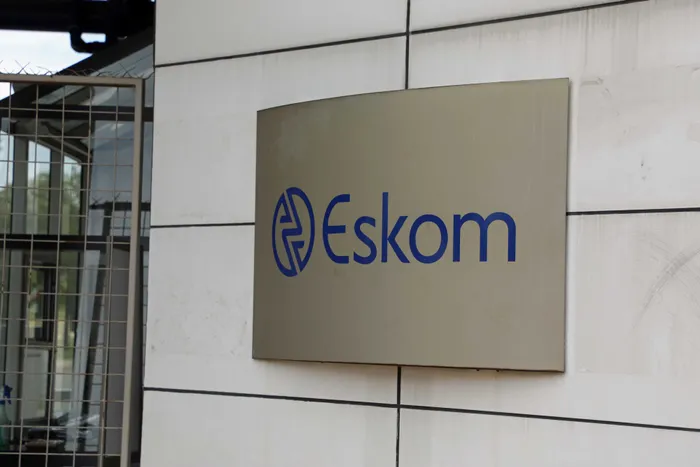Budget: Eskom's first profit in a decade overshadowed by rising municipal arrears

In his MTBS, Finance Minister Enoch Godongwana said that Eskom has increased its available generation capacity and reduced unplanned power cuts, reflecting improved maintenance.
Image: Armand Hough/Independent Newspapers
While State-Owned Enterprise Eskom reported a profit for the first time in 10 years, issues surrounding municipal arrears continue to persist, going up R39.3 billion over the course of a year.
The status of Eskom’s debt relief was announced during Finance Minister Enoch Godongwana’s 2025 Medium Term Budget Policy Statement (MTBS) on Wednesday.
In his speech, the minister said that Eskom has increased its available generation capacity and reduced unplanned power cuts, reflecting improved maintenance. As of 29 October 2025, the county had experienced 167 consecutive days without load-shedding.
It states that in 2024/25, for the first time in a decade, Eskom reported a profit, with the utility also demonstrating improved technical performance, along with significantly fewer days of power cuts recorded in 2025.
“However, the improved financial performance remains at risk, partly due to escalating municipal debt arrears. In 2023/24, government initiated a debt-relief arrangement to strengthen Eskom’s balance sheet, enabling it to restructure and undertake essential investments and maintenance required to ensure a stable electricity supply.
“As reported in the 2025 Budget Review, partly in response to Eskom’s improved performance, the National Treasury revised the package, extending the support period to 2028/29 and reducing the total relief provided from R254 billion to R230 billion,” the MTBS states.
“Legislation introduced in September 2025 provides for these measures.”
He explained that while the fiscal risk associated with Eskom has eased, continued implementation of operational and financial reforms is critical to sustain progress and ensure lasting stability.

The status of Eskom’s debt relief was announced during Finance Minister Enoch Godongwana’s 2025 Medium Term Budget Policy Statement (MTBS) on Wednesday.
Image: Timothy Barnard /Independent Newspapers
The minister said: “Municipal arrears to Eskom rose from R55.3 billion to R94.6 billion in the 12 months to 31 March 2025. This is despite the existence of the municipal debt-relief programme, which has been in place since March 2023, and the ring-fencing of legacy arrears.
“While 24 municipalities have qualified for the first one-third write-off after 12 consecutive months of payments, and 21 have generally maintained payments, as of 7 May 2025, 47 municipalities remain in default.
“This is the combined result of weak collections, excessive electricity and water losses due primarily to a lack of maintenance, and inadequate credit control.
“Measures are being taken to assist municipalities in raising revenue, including expanding smart prepaid metering,” Godongwana said.
“As endorsed by the Minister of Finance, and as an interim measure, defaulting municipalities will transition, where appropriate, to Distribution Agency Agreements (DAAs).
“Under these agreements, Eskom will operate municipal electricity services for a defined period, support cost-reflective tariff setting and loss reduction, and assist with collections.”
During this period, municipalities will be required to select the most appropriate service delivery mechanism, phase in cost-reflective tariffs and limit rebates.
“Municipalities must focus funding from the Municipal Infrastructure Grant and other relevant grants to rehabilitate existing water and electricity infrastructure, which is the conduit for revenue generation.
“Additional conditions include strict adherence to pro-poor policies to ensure that local governments are providing the required amounts, doing so within national limits and ring-fencing electricity revenues,” Godongwana said.
“The DAA pathway is intended to stabilise cash flows, improve payment discipline and create a bridge to longer-term structural reforms in the local government fiscal framework. The interim measure does not rule out stronger interventions where failures persist.”
Additionally, the National Transmission Company of South Africa is finalising market rules to govern the wholesale electricity market, which he said is necessary to promote competition and efficient pricing.
Government is also preparing to initiate procurement of the first phase of private-sector transmission projects; however, delays in procuring and connecting additional generation capacity due to grid availability and connection constraints persist.
theolin.tembo@inl.co.za